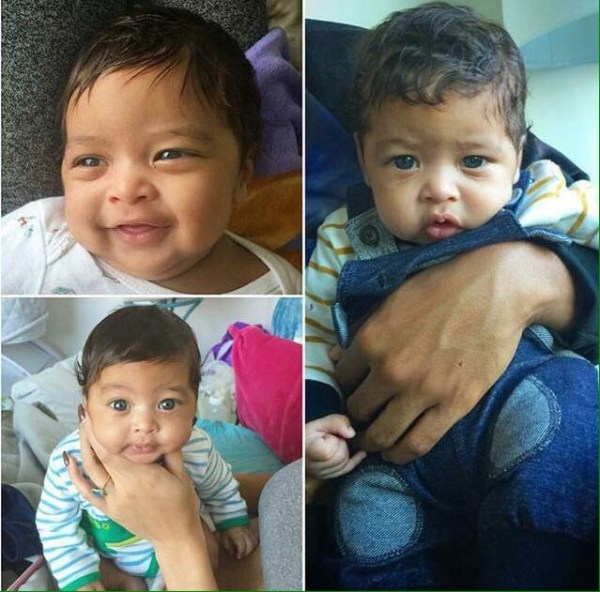
1. Steve Harvey’s grandson Noah

2.Tamera Mowry’s baby girl Ariah

5. Top Model Eva Marcille’s daughter Marley
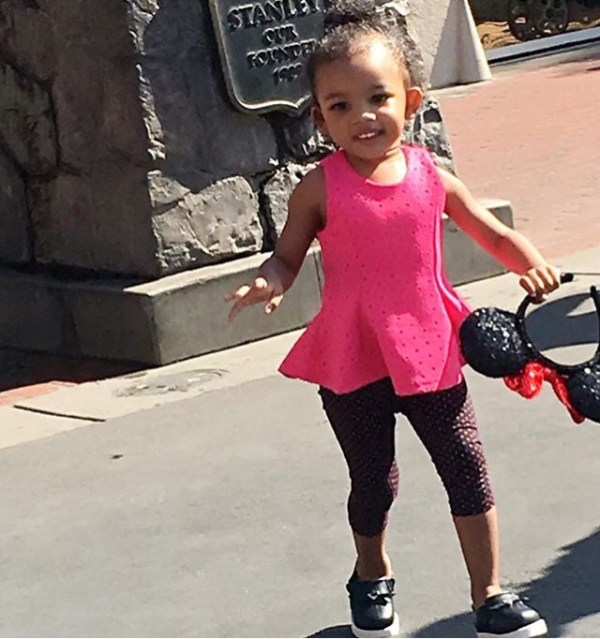
6. Vanessa Simmons daughter Ava Marie
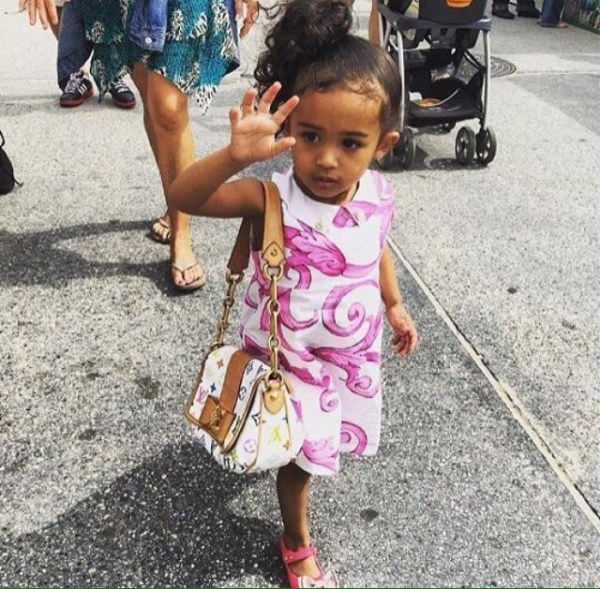
7. Chris Brown’s daughter Royalty
8. Kanye’s daughter North

Tony Elumelu is an African billionaire, philanthropist and a business man with a solid resume in economics. Due to his informative knowledge and training in economics, Elumelu will be utilizing his skills, abilities also the his empire where he sits on the board of Heirs Holdings and Transcorp to launch a new program spearheaded by his non-profit organization Tony Elumelu Foundation, to improve the state of Black economics and businesses in America. The program will also assist Africans and African-American entrepreneurs to reach the maximum and full potential of the corporations and companies they create and build.
In 2014, Tony Elumelu had a vision and partnered up with other African and American moguls, as well as prominent business men and women to develop a summit in Washington D.C., to address issues in economics affecting the Black community and present solutions to alleviate where most of the problems were. The summit also consisted of developing programs and organizations to foster opportunities for Africans and African-Americans to advance in economics, business and financial studies.
Elumelu’s vision is one of unity as well, in an effort to unite Africa and America with a solid business partnership to revise and aid in the progression of economics in Black communities across the nation. Tony strongly believes the programs that are being invested and launched will be rewarding for all those involve and will amplify not just the Black buying power, but also the Black investing power, to own and become leaders in entrepreneurship and businesses.
The Tony Elumelu Foundation has already put forth $100 million dollars in scholarships, education programs, funding and etc. to help entrepreneurs become their best and even achieve greatness in the business world.
To apply or get more information, please visit TEF HOME
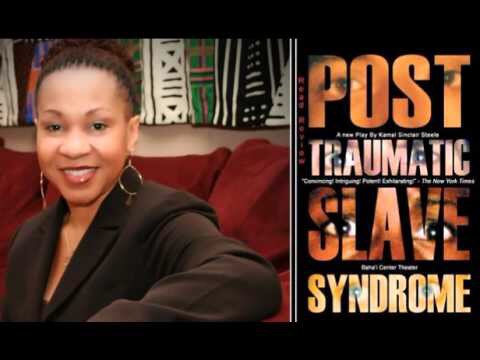
Dr. Joy DeGruy gave this year’s Black History Month keynote presentation, entitled “Post Traumatic Slave Disorder: America’s Legacy of Enduring Injury and Healing.” DeGruy is a renowned researcher and educator who specializes in mental health, using a psychological perspective to analyze race relations in American society. In her presentation, DeGruy addressed the multi-generational impacts of slavery and offered a few suggestions for how to help heal this trauma.
Starting the speech on a humorous note, DeGruy stated that the presentation would be like a “condensed 10-week graduate level course: intense and heavy.” DeGruy gave a broad historical account of slavery and events after abolition in order to explain the deep-rooted context for the development of what she called the “slave syndrome.”
Throughout her presentation, DeGruy used the idea of cognitive dissonance to illustrate how science, religion, politics and law served as a part of the legitimized system of the dehumanization of black people. DeGruy mixed historical facts with contemporary anecdotes in order to illustrate the psychological continuity which exposes what she calls the symptoms of pathology from slavery to the present day.
“You cannot fix what you don’t understand,” DeGruy said, pointing out on the necessity of keeping the conversation alive. She noted that the issue has been hidden, saying that “by erasing the issue, you erase me.”
“Denial was huge. That denial turns into something that says, ‘Not only can’t I hear what you are saying, I need to stop you from saying it,’” DeGruy said. “So it gets deeper than that. I need to silence you. This injury reflects itself in things like ‘I don’t see race,’ or ‘I don’t really care what color people are.’ So you have all of these pathologies that show up because people aren’t dealing with reality.”
After the presentation and a short Q&A, DeGruy was available for brief individual talks and gave autographs. Overall, DeGruy’s presentation was well-received.
Baseme Osuampke from Houston, Texas, found that DeGruy’s talk was thought provoking.
“I still want to read up on this stuff, not because I don’t believe it, but because there’s so much that I might have missed throughout the speech that I would want to learn and spread to the rest of my community,” Osuampke said.
Christine Ohenewah ’15 and Obiele Harper ’17 found that much of what DeGruy spoke about resonated with them.
“She was very unapologetic, and I think that that discourse really [has] not always [been] brought to the light, because for some it seems controversial, even though it is an experience that is experienced by many,” Harper said. “Sometimes we forget that those [racial issues] still exist, but there’s a new form of slavery, which actually puts more people as a whole in bondages. The more you put someone in bondage, the problem perpetrates over and over again.”
Ohenewah made a connection to the intergenerational psychological continuity of the legacy of slavery to explain the racialized difference in perception of the issue.
“Where you find us having a more heartfelt reaction to such things is because of our blood. We are haunted by our history, and we do feel the ghosts of various black women. Their grief gets passed on through our genealogy,” Ohenewah said. “The same is not occurring with white people.”
“I felt like Dr. DeGruy did such a fantastic job of giving her points, and did not hold back at all. It’s something that needs to continue to be taught, especially at the institution, like a liberal arts college,” Ohenewah said. “We cannot back off of such issues, we have to keep embracing different narratives, different epistemologies so that we can enact change. We don’t enact change by staying away from reality.”
Watch her speak on the topic below….
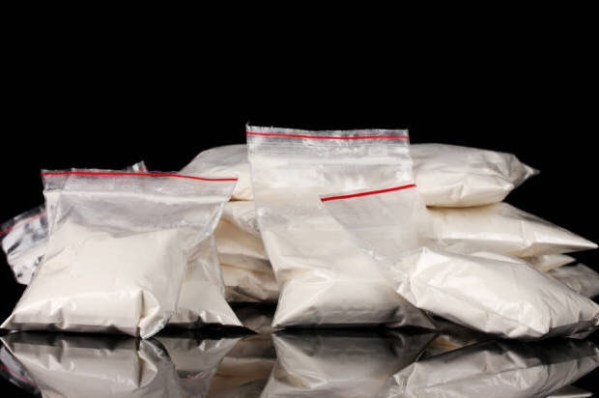
Stereotypes and mainstream media will lead one to believe that black youth are hardened criminals and drugs abusers, yet the actual facts and studies show something completely different. Although more black youth come from poverty stricken backgrounds which are typically higher in crime and drug abusers, the middle to high class white youth have the resources to obtain hardcore more expensive drugs.
By now we can all agree that the real target of Reagan’s enduring war on drugs was never drugs, it was African Americans. But if rising incarceration rates among black youth or the utter failure to curtail drug use is not enough proof, perhaps a new study from Northwestern University on racial differences among drug users will do the trick.
According to the study’s findings recently published in the American Journal of Public Health, abuse and dependence on “hard drugs” (opiates, amphetamine, etc.) are “less common among delinquent African American youth than those who are non-Hispanic white.”
The study was conducted over the course of 12 years and interviewed 1,829 youth (1,172 males and 657 females between the ages of 10 to 18) who were detained at Cook County Juvenile Temporary Detention Center in Chicago between 1995 and 1998.
Researchers interviewed the participants in the study up to nine times through the course of their 20s. In that time, findings revealed that the odds of non-Hispanic white youths using cocaine were 30 times higher than African Americans. Hispanic participants trailed slightly behind, showing 20 times the odds of cocaine use compared to their African-American brethren.
“Those findings are striking considering the widely accepted stereotype of African Americans as the most prevalent abusers of ‘hard drugs,’” said senior author of the study Linda A. Teplin, professor of psychiatry and behavioral sciences at Northwestern University Feinberg School of Medicine.
Most notably, the findings of the study highlight the incongruity between drug use and incarceration rates along racial lines. According to estimated figures from the U.S. Department of Justice, of the males born in 2001, one in three African Americans and one in six Hispanics will be incarcerated at some point during their lifetimes. By contrast for Caucasians, that number is one in 17.
“Our findings add to the growing debate on how the war on drugs has affected African Americans,” said Teplin. “We found that African Americans are less likely than other racial/ethnic groups to abuse hard drugs. Yet African Americans are disproportionately incarcerated for drug crimes.”
Unsurprisingly, marijuana was the most commonly used drug across all ethnicities. As the participants reached their late 20s, however, alcohol seemed to take over as the substance of abuse.

Ray Lewis has a book coming out and needs the PR exposure. This privileged, elite athlete beat his manslaughter charges and is trying to find his lost mind after doing a deal with the system…All that preacher hollering without talking about the causes (defunding of education, lack of jobs, the new jim crow/mass incarceration, CIA began drug trafficking crack cocain in our Black communities – Reagan Iran Contra – Freeway Rick Ross), depression and lack of hope). Name a community with high employment, opportunities and credit scores over 700 with a high crime rate? I’ll wait.
What about white on white murders? You don’t here about it because it doesn’t fit the propaganda narrative that our community is different than all other ethnic groups. Each ethnic group is more likely to be killed by someone of the same group. Also, Chicago’s corrupt Police Department has been killing and torturing false confessions from Black and Brown innocent citizens for decades with impunity. What percentage of deaths are attributed to criminal cops? It hurts to see anyone killed no matter what ethnic group. The solution is jobs, opportunities, community policing, local voting to control City Council and supporting businesses in the community.
His preacher mimicked sermon set many off on Twitter, here’s some of the comments:
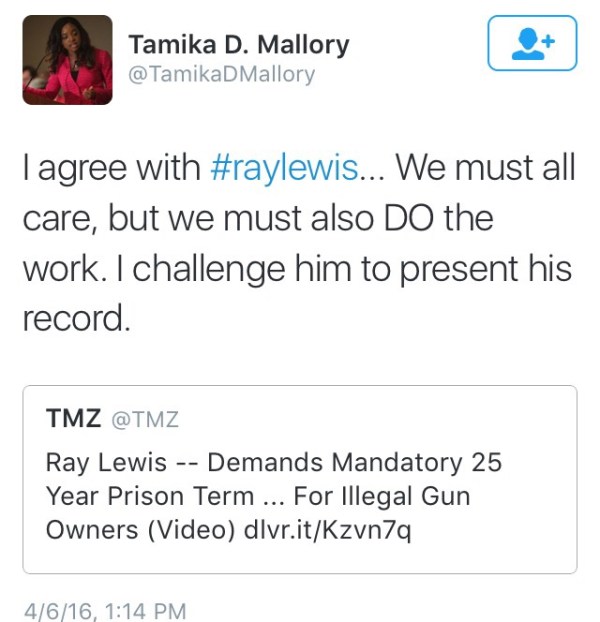

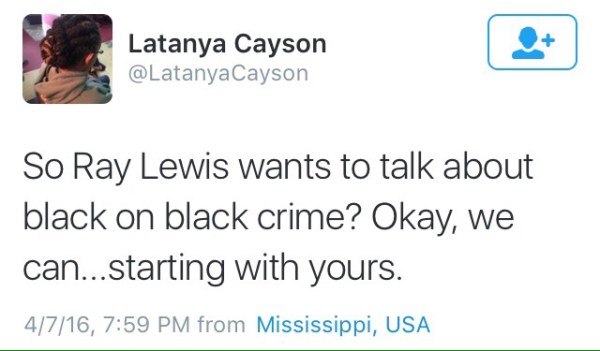
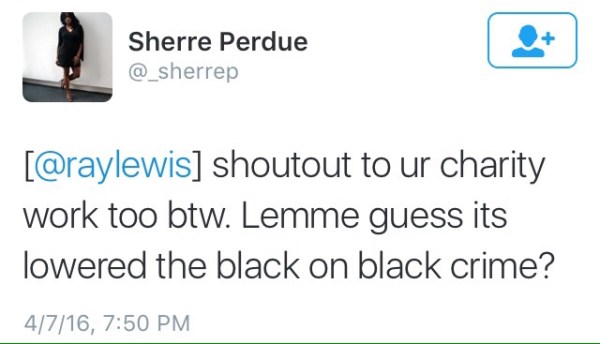
Watch the video below to see his sermon, was he on point, or way off the mark….
Enjoy….
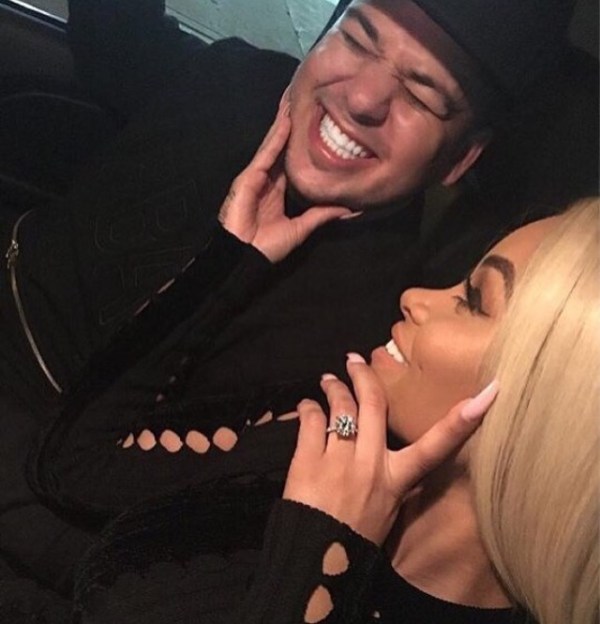
Oh boy! BlacRob is here for the shits and giggles most of us are getting from this. She (soon to be Angela Reneé Kardashian) definitely said yes, and I’m here for all of the fuckery. This family has a thing for dark meat, as all of the sisters with the exception of Kourtney Kardashian all have black mates. Amber Rose is here for it also leaving this comment for the lovebirds…

The Kardashian clan has yet to respond and react to the news of this engagement. Mama(Pimp) Kris is mighty quiet about her only son’s engagement. I’m sure she’s sick about it…lol.
Tyga, the child predator/lover of Kylie Jenner/BLAC Chyna’s ex and sons father hasn’t made any comments yet either. This whole debacle is a hot mess and all us petty folks are sitting back, popcorn in hand, watching the drama unfold.
Will there be a wedding? An actual wedding??? That will be the ultimate show, and if it happens, all hail Blac Chyna – the Queen of payback is a bitch!
Oh, and props to Chyna for making Rob cute again, whipping him into shape and bringing him back to life. That woman deserves that 7 carat VVS Rock. Courtesy of Ben Baller.
Blacks have been the guinea pigs of Western medical experiments for centuries now.
One of the more prominent experiments (that the public is aware of) was the Tuskegee syphilis experiment from the 1930s. Scientists studied poor Blacks in Alabama who’d contracted the venereal disease, but did not tell them they had the disease or do anything to cure them.
A similar study has come to the forefront and it involves one of the nation’s most prestigious medical institutions, John Hopkins University. A lawsuit filed in April alleges Johns Hopkins University and the Rockefeller Foundation helped conduct similar experiments in Guatemala from 1945 to 1956.
According to the lawsuit, orphans, inmates, psychiatric patients and prostitutes were deliberately infected with sexually transmitted diseases to determine what drugs, including penicillin, worked best in stopping the diseases. The subjects of the experiments were not told they had been infected, causing some to die and others to pass the disease to their spouses, sexual partners and children.
The lawsuit alleges the Rockefeller Foundation funded Johns Hopkins’ research into public health issues, including venereal disease, and employed scientists who monitored the Guatemala experiments. The suit also states that Johns Hopkins and the Rockefeller Foundation designed, supported and benefited from the Guatemala experiments.
The following experiments were performed.
Prostitutes were infected with venereal disease and then provided for sex to subjects for intentional transmission of the disease;
Subjects were inoculated by injection of syphilis spirochaetes into the spinal fluid that bathes the brain and spinal cord, under the skin, and on mucous membranes;
An emulsion containing syphilis or gonorrhoea was spread under the foreskin of the penis in male subjects;
The penis of male subjects was scraped and scarified and then coated with the emulsion containing syphilis or gonorrhea;
A woman from the psychiatric hospital was injected with syphilis, developed skin lesions and wasting, and then had gonorrhoeal pus from a male subject injected into both of her eyes and;
Children were subjected to blood studies to check for the presence of venereal disease.
The suit has 774 plaintiffs, including people who were subjects in the experiments and their descendants, and seeks more than $1 billion in damages. This is the second attempt to collect damages.
In 2012, a class-action federal lawsuit was filed against the U.S. government over the Guatemala experiments conducted by the U.S. Public Health Service. It was dismissed, as the Guatemalans could not sue the United States for grievances that happened overseas. As of then, a new lawsuit has been filed in the Baltimore City Circuit Court.
Both John Hopkins University and the Rockefeller Foundation deny involvement, but do not deny that the experiments took place. In 2010, then-Secretary of State Hillary Clinton apologized to Guatemala for the experiments, saying they were “clearly unethical.”
Source
I’m so disgusted, angry, and heartbroken by this, yet not surprised. We have been hated as people, disrespected and abused for centuries. I am forever distraught from from ever trusting a medical experiment or vaccine this country has to offer for obvious reasons. No amount of money can cure the damage done to these people.
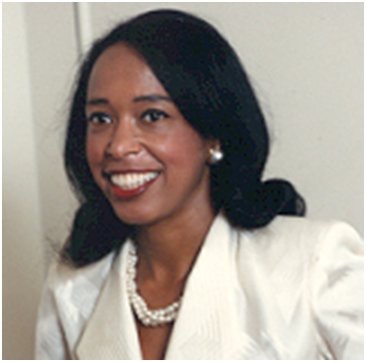
Meet Dr. Patricia Era Bath, the brains behind LASIK Surgery.
If you are considering Lasik Eye Surgery, you can thank this woman who invented the procedure in 2000. She holds four of the patents on the procedure so you will be assisting her in her philanthropic work and helping her Alma Mata, Howard University through her endowment if you do get the procedure.
Dr. Patricia Era Bath (born November 4, 1942, Harlem, New York) is an American ophthalmologist, inventor and academic. She has broken ground for women and African Americans in a number of areas. Prior to Bath, no woman had served on the staff of the Jules Stein Eye Institute, headed a post-graduate training program in ophthalmology or been elected to the honorary staff of the UCLA Medical Center (an honor bestowed on her after her retirement).
Read more about this iconic woman HERE
We are amazing people.
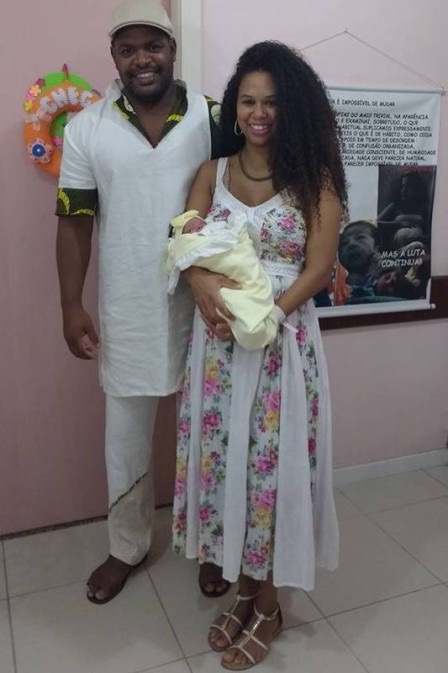
When you can’t even name your child giving honor to your African roots due to racism, it makes you lose hope for humanity.
With just one week of life, little Makeda is already facing the first fight of her life: having a civil registry. The name Makeda Foluke means Grandiose that is at the care of God, but even so, the girl, who was born on the 16th in the Casa de Parto David Capistrano Filho (House of Labor David Capistrano Filho, in Realengo, in the West Zone of Rio, still can’t be placed on her birth certificate. All because the registration office of the 2nd district of São João de Meriti, in the Baixada Fluminense region, understood, according to the girl’s parents, that the name would cause embarrassment for the child in the future. Makeda’s family believed they were the victim of racism.
“It’s a form of racism that takes place in Brazil: the racism of subtleties. It should be very natural a man and a black woman adopting an African name, as the country is made up of three races. It is difficult to prove. Only those in this skin is knows,” lamented the child’s father, Cizinho Afreeka, 44.
Cizinho, which is a public servant and is depending on the registration to have a maternity leave, also said that he and his wife, the Physical Education teacher Jéssica Juliana, 27, thought about the issue of name pronunciation before choosing it:
“It’s not a name phonetically alien to Portuguese, we thought about it. There are African names that change the pronunciation and cause greater estrangement.”
Makeda was what the Ethiopians called the rainha de Sabá (Queen of Sheba). Foluke is a Yoruba name. The girl’s name was decided early in the pregnancy.
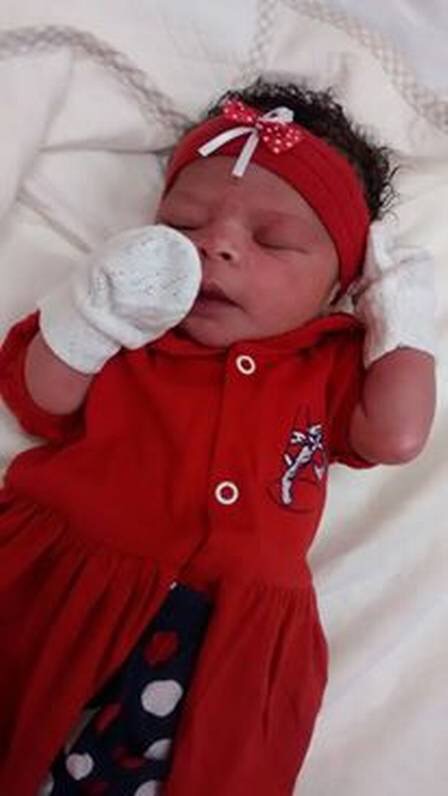
“We decided together quite in early in the pregnancy and we came to call her Makeda. Family and friends already speak naturally because we were inserting this. What’s the problem with naming her Makeda if they register so many European names,” asked Jéssica.
Cizinho came to speak to a civil registration official, Luiz Fernando, by telephone, but a petition was necessary so the name could be analyzed:
“He said he thought the name was beautiful. They already knew that the name was African. They searched the internet before giving a negative. I made a petition and took a statement from my wife authorizing, but it was denied. The notary suggested I put a name in Portuguese in front. But I will keep on until the end. Either it will be Makeda Foluke or she’ll be with no registration.
“The procedure is necessary with any name that can be used to leave the child in a vexatious situation or bullying. You have to filter. These procedures are normal, no one refused to do the registration,” said Luiz Fernando. “It is not the name, not the meaning. It’s pronunciation, diction. Racism is really in people’s minds,” he finalized.
According to the Internal Affairs Division of the Court of Rio, the registration office submitted to the judge in charge a procedure of doubt. The prosecutor’s office issued an opinion against the use of the name because they considered it likely to cause future problems for the child, suggesting that a pre-name be added to the other names such as Ana Maria Makeda, for example. If the judge does not authorize, it will be up to the party to appeal the decision in the procedure in the proper registry office that will forwarded to the Council of the Magistracy.
Parents want their daughter to be named Makeda
Also according to internal affairs, “when pronouncing the name in Portuguese it makes no sense at all, except for coming out wrong, which could provide possible future suffering for the person in social life.” The criterion used is “the analysis of the magistrate and the Ministério Público (public prosecutors) who act to protect the child. Law 6.015/73 gives that power to avoid registrations with names that may affect the social life.”
Read the response of internal affairs in full:
“The prosecutor’s office issued an opinion against the use of the name because they considered it likely to cause future problems for the child, suggesting a pre-name was added to the other names…such as Ana Maria Makeda or something like this.
If the judge does not authorize, it will be up to the party to appeal the decision in the procedure in the proper registry office that will be forward to the Council of the Magistracy.
When you pronounce the name in Portuguese it makes no sense at all, except for coming out wrong, which could provide possible future suffering for the person in social life.
The criterion is the analysis of the magistrate and prosecutors who act to protect the child. Law 6.015/ 73 gives this power to avoid registrations with names that may affect the social life. The criteria are the social and historical phonetics of Portuguese, verifying the sense that the name may have to be spoken or read, must meet in these criteria elements that can classify it as vexatious. Thus are considered vexatious historical names of bloodthirsty dictators or persecuted characters or execrated over time, the objectification of the name or the phonetic pronunciation, which seems to be the case, because it will not make any sense to those who do not know its origin and its translation, favoring acts as “bullying” or discrimination. Several cases where the lack of care of the registers and deeper analysis produced cases that later forced people to go to court to change the first names are notorious due to the embarrassment caused in childhood. One of the most famous was that of the daughters of Baby and Pepeu (1).
The request is being examined by the responsible judge, but it is an analysis at the administrative level that provides for its consideration on appeal to the Judicial Council through a specific procedure.”
This is what happens when GOVERMENT has too much control. I ask if a European name has ever been challenged like in this case. It’s blatant inexcusable racism. The country has a deep history of racist disparate treatment of its black citizens. I pray this couple prevails, and despite the decision, call their daughter by the name they want her to have.